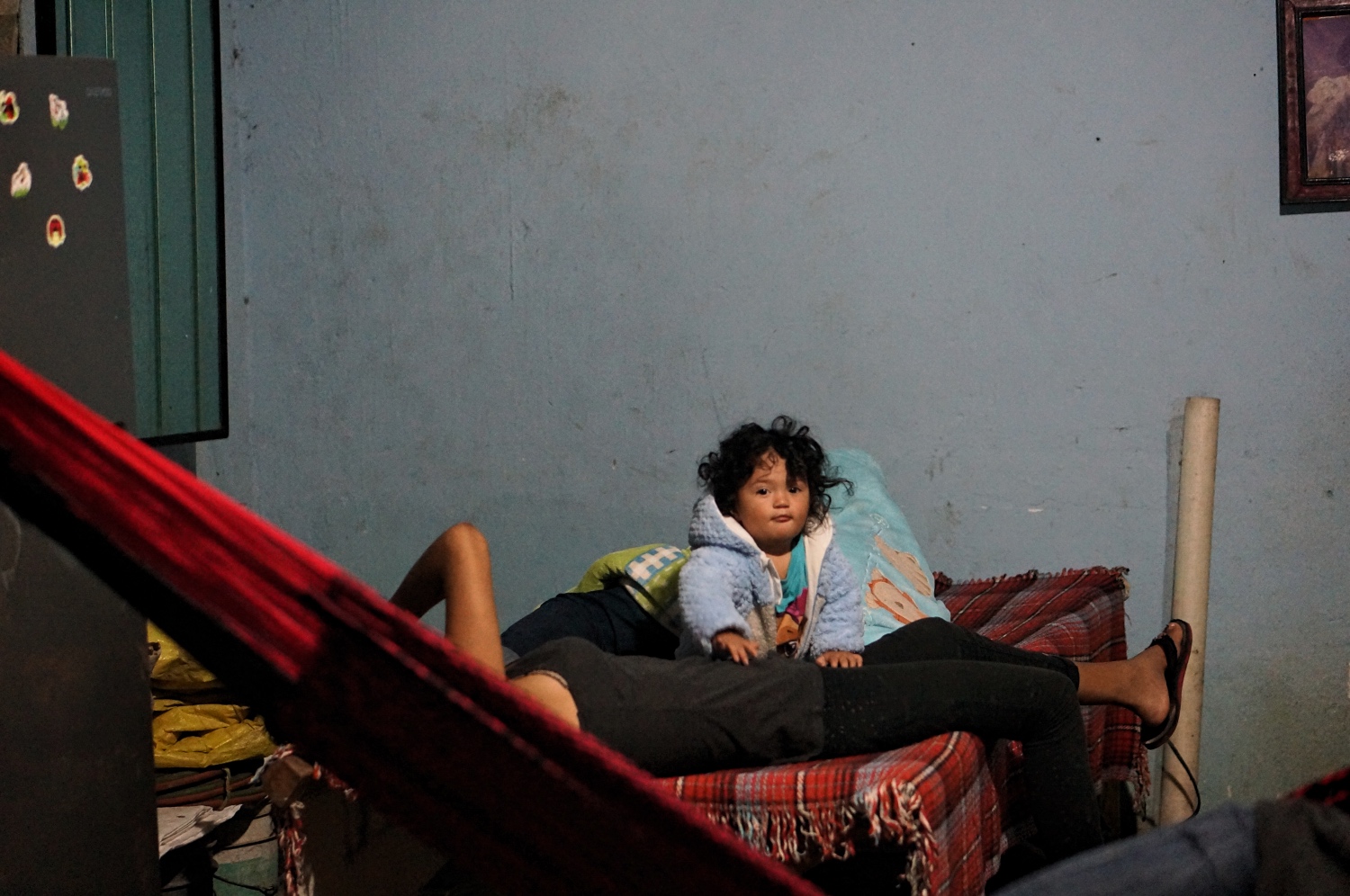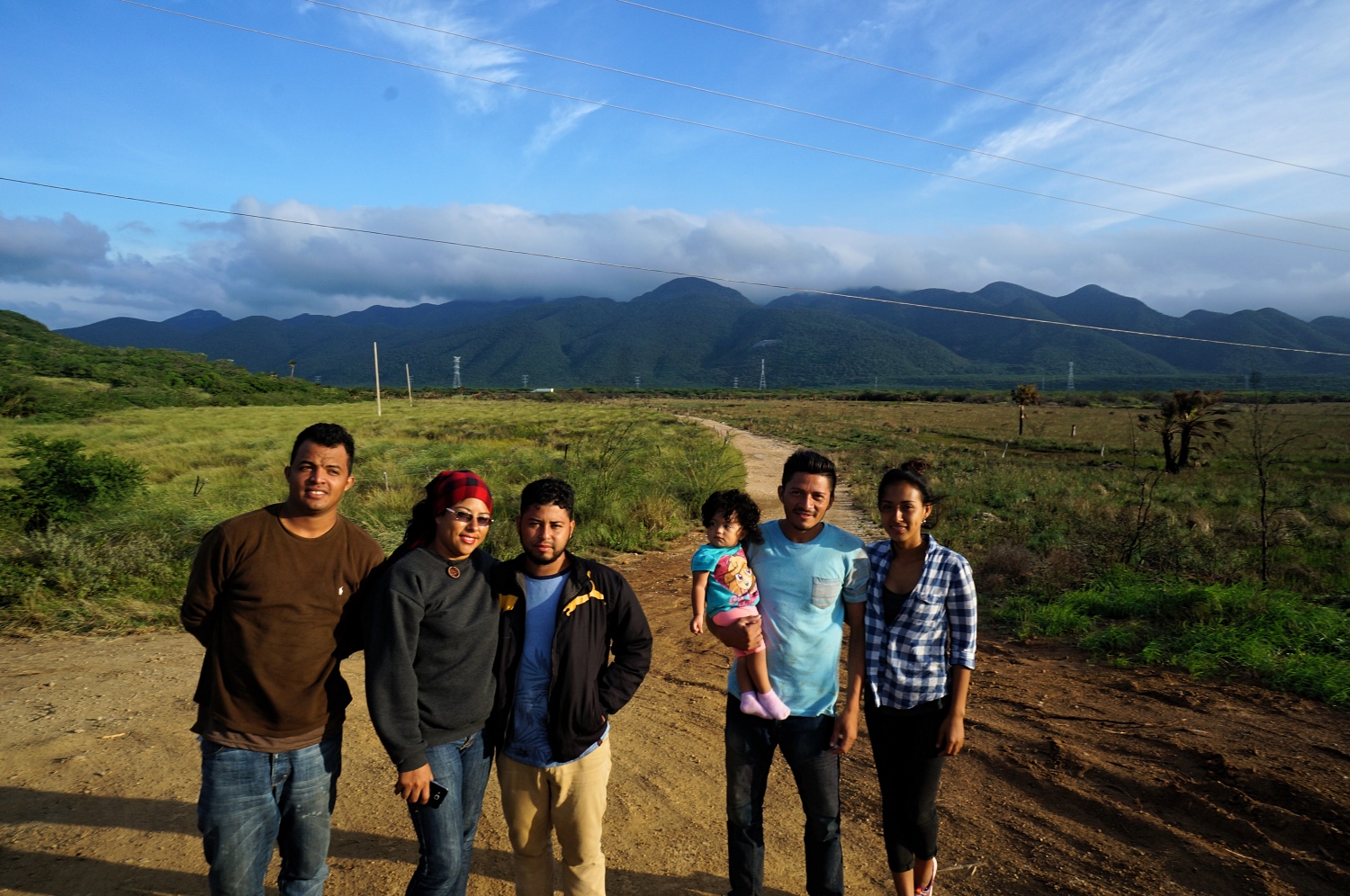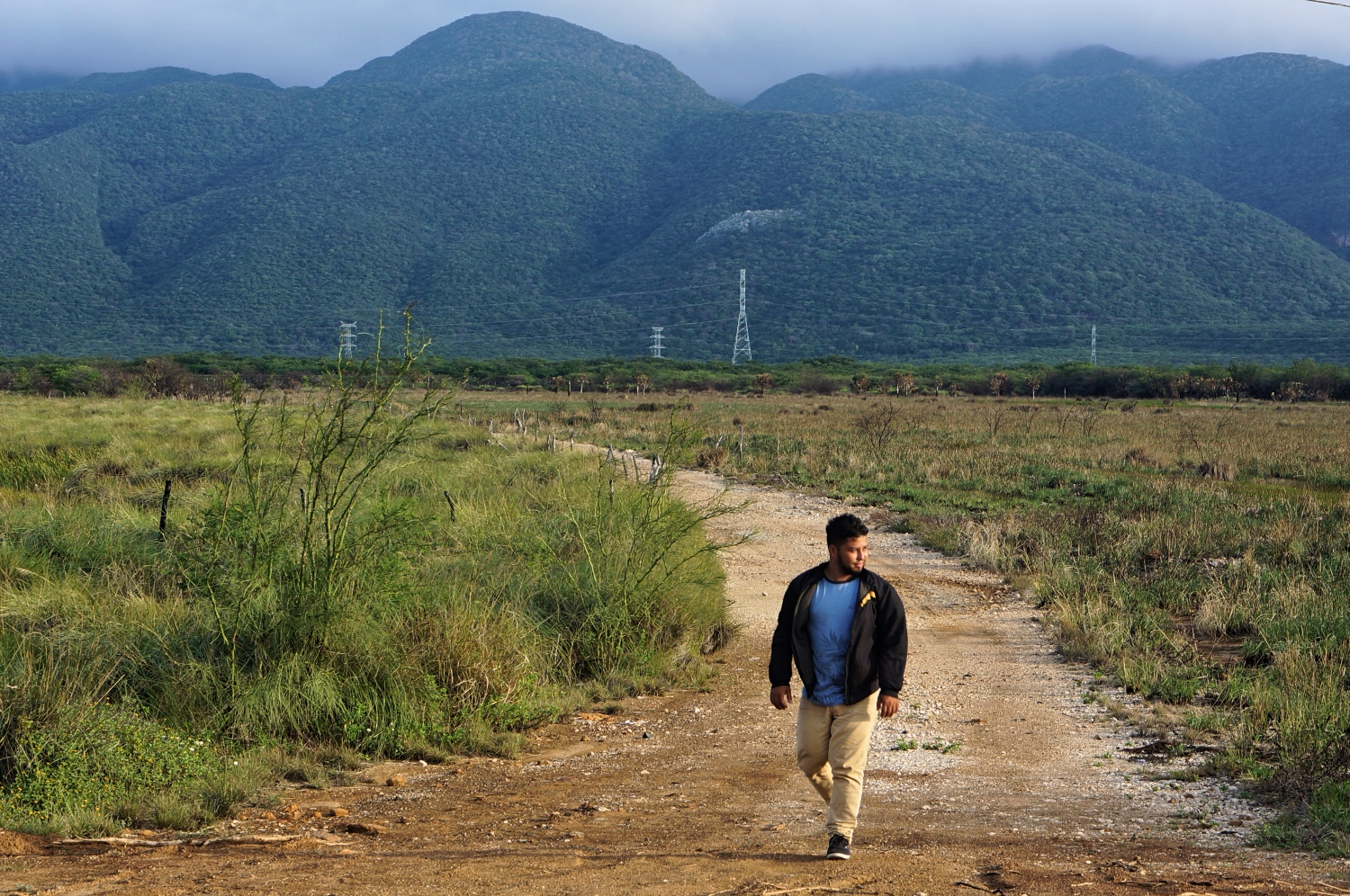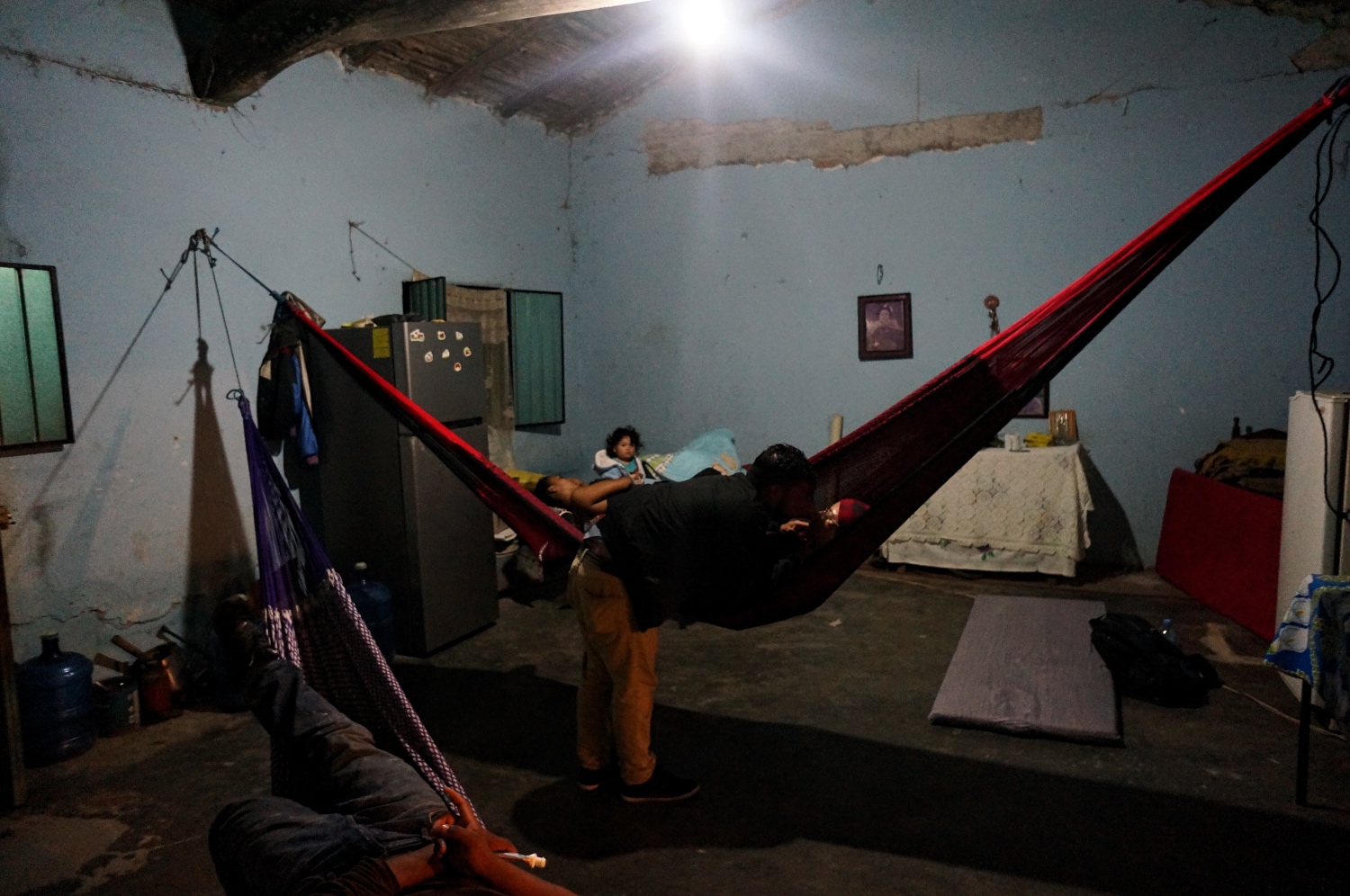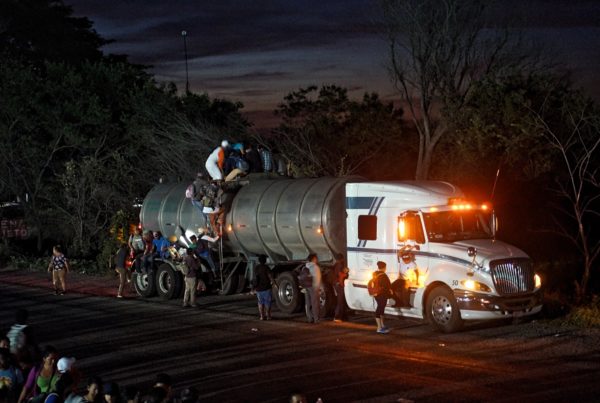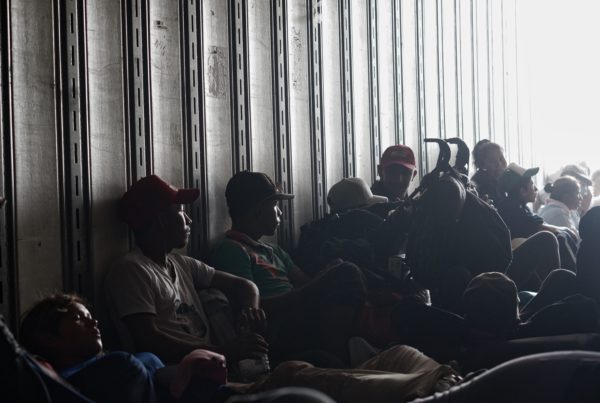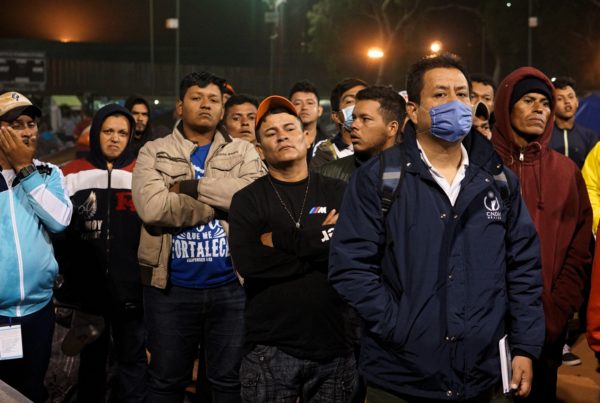Antonio and Vincent are the first of the caravan people I meet. Antonio is a short 27-year-old, with a chin strap beard. He has a friendly face and calls himself “gordito” which is an affectionate way of saying little fatty.
Vincent is a lean 30-year-old with wrinkles at the corners of his eyes. His hair is cut like mine, short on the sides and combed to one side on top. He has a large tattoo on his right forearm that reads, ‘Andrea’. Vincent invites me to join their group of six.
The group have made camp underneath a tree, next to an abandoned car, on the broken and uneven pavement in front of an orange and green painted casa.
Vincent sits next to his wife Eva and their curly-haired, pudding of a daughter, Madeline. Eva is eighteen years old and quiet. Her attention is reserved for Madeline, who spends most of her time feeding and sleeping. Madeline had her first birthday six days ago.
Antonio puts his arm around his wife, Tina, and kisses her affectionately. Tina is thirty-two. Her two children from a past relationship are not with the caravan.
Pedro, the solo traveller, sits slightly apart. They call him “Negro” because he has slightly darker skin than the rest of them. His eyes tend to droop at the corners which give him a dopey look.
They are travelling light. They don’t even have bottles of water or food. Their clothes are covered in dirt, their faces sag from exhaustion. They look like the images of dirty, poor migrants which have been broadcast all over the American news.
”We can’t live in Honduras. It is an ugly country. The young people live in a horrible psychological system where they never know when they could be killed
They are all from Honduras, a country terrorised by drugs, criminal gangs, poverty, drought and corruption. In Honduras, about two-thirds of people live in poverty. Since 2010, Honduras has had one of the highest murder rates in the world. According to the UN, roughly 15% of US-bound cocaine lands in Honduras fueling crime-related violence. What makes this worse is that often the police in Honduras are corrupt and work with criminal syndicates.
Pedro and Vincent are farmers, Antonio is an electrician. None of them can find work. All of them have tried to immigrate to the US before.
“We can’t live in Honduras. It is an ugly country. The young people live in a horrible psychological system where they never know when they could be killed,” Antonio tells me. “We want to go to the land of opportunity and law.”
The men were strangers before joining the caravan but have become friends since. The twenty-four-year-old Pedro believes it is harder to travel alone as he doesn’t have anyone to watch out for him. The group fear robbers and drunks among the caravan. They have to be especially vigilant at night.
“Not everyone in the caravan is a good person, just like not everyone in the United States is a good person,” Pedro says.
Pedro tells me he prefers to travel within their group because it is safer, but there were clearly other benefits to travelling together. Tina, Antonio and Pedro help look after Madeline, who is the centre of attention. Pedro is affectionate with the gurgling infant, bouncing her on his knee and whispering in her ear. There is a sense of community and solidarity among the six.
There are similar benefits to migrating in the caravan. Travelling in large numbers offers protection from bandits who target migrants for kidnap, extortion and rape. The caravan also provides safety from Mexican immigration. It is much easier for Mexican officials to arrest and deport solo travellers.
The lame duck Peña Nieto administration in Mexico is caught between a chest-thumping Trump, threatening to cut off trade if action is not taken against the migrants, and the incoming government of Andrés Manuel López Obrador, who successfully campaigned on a gentler approach to migration.
The caravan was halted by Mexican riot police at the border, but only momentarily as some migrants resorted to crossing the river in rafts. Since then, it appears the caravan has protected members from the Mexican authorities. Although, when another caravan clashed with police forces on the Mexico-Guatemala border, a 26-year-old Honduran named Henry Diaz was killed after being shot in the head with a rubber bullet.
Instead, the Peña Nieto administration offered migrants temporary work visas, health benefits and the opportunity to enroll their children in school in the southern states of Oaxaca and Chiapas. Chiapas and Oaxaca also happen to be the two poorest states in Mexico. Seventy percent of their populations are considered “poor”. Officials say more than 1,000 migrants have applied for asylum in Mexico. For the thousands of other members of the caravan fleeing poverty, unemployment and violence, Mexico is not the answer. Their goal is the United States.
The group tells me that a pregnant woman and her unborn child died the other day because of sickness and heat. This has everyone worried for Madeline who started vomiting from a stomach bug a few days ago.
While we speak, an old Mexican man leaning in the doorway of the home behind us listens. He has offered the Hondurans hammocks and sleeping mats for the night in his house.
“They are searching for the American dream,” he tells me, conveying a sense of pity for the group.
I ask if I can also stay in his house. It’s a small puebla with one hotel, already fully-booked. I think he finds my request amusing but he offers me a hammock nonetheless.
